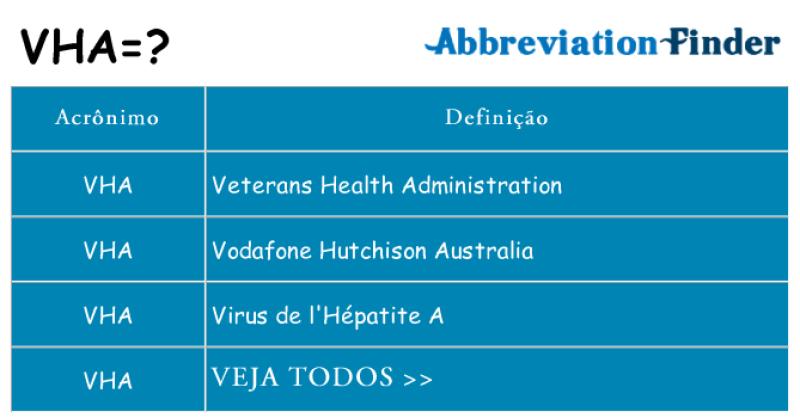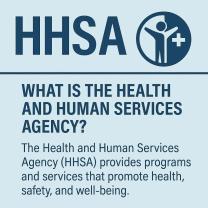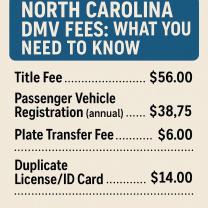What does VHA stand for?
The Veterans Health Administration (VHA) is a branch of the United States Department of Veterans Affairs (VA) dedicated to providing comprehensive healthcare services to eligible military veterans. It operates as one of the largest integrated healthcare systems in the United States and serves millions of veterans annually.
Services Offered:
- Medical Care: VHA facilities offer a wide range of medical services, including primary care, specialized care (such as cardiology, oncology, neurology), preventive care, and women's health services.
- Mental Health Services: VHA provides mental health support, counseling, and treatment for conditions like PTSD, depression, and substance abuse.
- Rehabilitation Services: This includes physical therapy, occupational therapy, and other rehabilitation programs to assist veterans in regaining functionality after injuries or surgeries.
- Long-Term Care: VHA offers long-term care services, including nursing home care, palliative care, and hospice care for eligible veterans.
- Telehealth Services: Utilizing technology, VHA offers telehealth services for remote consultations, monitoring, and healthcare delivery.
Facilities:
- Medical Centers: VHA operates numerous medical centers across the U.S., providing specialized care, surgeries, and comprehensive medical services.
- Outpatient Clinics: These clinics offer primary and specialty care services to veterans in local communities.
- Community-Based Outpatient Clinics (CBOCs): Smaller clinics situated in communities, providing primary care, mental health services, and preventive care.
- Veterans Centers: These centers focus on counseling and support services for combat veterans and their families.
Initiatives and Programs:
- VA MISSION Act: Aims to improve veteran access to healthcare, offering community care programs and greater flexibility in receiving medical services.
- Whole Health Approach: Encourages a holistic approach to healthcare, focusing on overall well-being, including physical, mental, and emotional health.
- Research and Innovation: VHA is involved in medical research and innovation to improve healthcare outcomes for veterans.
Eligibility:
- Veterans eligible for VHA services generally include those who served in the active military, naval, or air service and were discharged under conditions other than dishonorable.
Importance:
- VHA plays a crucial role in honoring the commitment to provide healthcare services to those who served in the U.S. military, ensuring veterans receive quality care for various health needs.
The Veterans Health Administration remains dedicated to its mission of serving those who have served by delivering comprehensive and specialized healthcare services to eligible military veterans across the United States.
1. VHA: A Comprehensive Overview
The Veterans Health Administration (VHA) is the largest integrated healthcare system in the United States, providing a wide range of medical services to veterans of the United States Armed Forces. As an agency within the U.S. Department of Veterans Affairs (VA), the VHA plays a crucial role in fulfilling the VA's mission of providing quality healthcare to America's veterans.
2. Primary Responsibilities and Functions
The VHA's primary responsibility is to provide comprehensive healthcare services to veterans, including medical, surgical, dental, mental health, and rehabilitation services. It strives to maintain a high standard of care, ensuring that veterans receive the necessary treatment and support to maintain their physical and mental well-being.
Key functions of the VHA include:
Operating a vast network of healthcare facilities: The VHA manages over 1,700 healthcare facilities across the United States, including 172 medical centers and 1,138 outpatient clinics.
Providing a comprehensive range of services: The VHA offers a broad spectrum of healthcare services, covering primary care, specialty care, mental health care, rehabilitation services, and research programs.
Administering VA healthcare benefits: The VHA oversees the administration of VA healthcare benefits, ensuring that eligible veterans receive the care they are entitled to.
Conducting medical research: The VHA engages in extensive medical research, aiming to advance the understanding of veteran-specific health issues and develop new treatment approaches.
3. Structure and Organization
The VHA is a complex organization with a hierarchical structure. At the top is the Secretary of Veterans Affairs, who oversees the entire VA, including the VHA. The VHA is led by the Under Secretary for Health, who reports to the Secretary.
The VHA is further divided into various organizational units, including:
Veterans Integrated Service Networks (VISNs): The VHA is divided into 21 VISNs, each responsible for managing a regional network of VA healthcare facilities.
Veterans Medical Centers (VMCs): VMCs are the largest and most comprehensive VA healthcare facilities, offering a full range of inpatient and outpatient services.
Community-Based Outpatient Clinics (CBOCs): CBOCs provide outpatient care in communities closer to veterans' homes, reducing travel burdens and improving access to care.
4. Challenges and Opportunities
The VHA faces several challenges in meeting the healthcare needs of veterans:
Growing veteran population: The number of veterans seeking VHA care is increasing, placing strain on resources and infrastructure.
Complex healthcare needs: Veterans often have complex healthcare needs due to service-related injuries, chronic conditions, and mental health issues.
Aging infrastructure: Many VHA facilities are aging and require modernization to meet the evolving needs of veterans.
Despite these challenges, the VHA also presents opportunities for improvement:
Embracing technology: The VHA is increasingly utilizing technology to enhance healthcare delivery, such as telehealth and electronic health records.
Expanding partnerships: The VHA is partnering with community healthcare providers to expand access to care and reduce wait times.
Promoting preventive care: The VHA is emphasizing preventive care to help veterans maintain their health and reduce the need for future treatment.
5. Future Outlook and Initiatives
The VHA is committed to continuous improvement and innovation to enhance veteran healthcare services. Key initiatives include:
Transforming care delivery: The VHA is working to transform care delivery models, focusing on patient-centered care, team-based approaches, and integrated physical and mental health care.
Improving access to care: The VHA is expanding access to care through telehealth, mobile clinics, and partnerships with community providers.
Enhancing quality and safety: The VHA is implementing measures to improve the quality and safety of care, including patient safety initiatives and performance measurement programs.
Through these initiatives and a continued commitment to excellence, the VHA strives to provide veterans with the highest quality healthcare services, honoring their service and ensuring their well-being.












